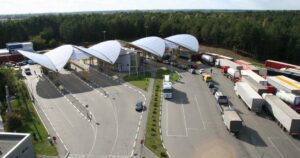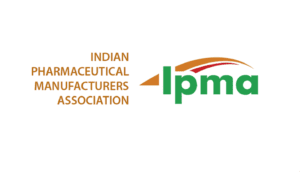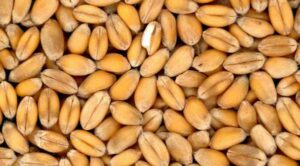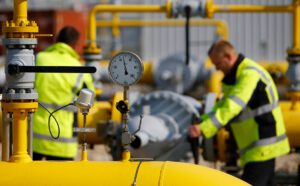
Truck drivers blocked the road at the Polish checkpoint Yagodin-Dorogusk and went on strike demanding to improve the work of the Polish phytosanitary and veterinary control, said Deputy Minister of Infrastructure of Ukraine Mustafa Nayem.
“Polish drivers put forward three demands: speed up phytosanitary and veterinary control and transfer the service to a round-the-clock mode of operation,” he wrote on Facebook on Monday.
According to Nayem, every hour drivers let 2 cars pass: 1 with goods and 1 empty.
He clarified that 2,650 trucks are now waiting on the border with Poland in front of the Yagodin checkpoint to leave Poland, while 300 trucks are waiting to enter Ukraine. At the same time, the line for the last day has increased by 8 km and reaches 53 km.
Naem stressed that the cause of the strike was the indifference of the Polish authorities and the pretense that “nothing is happening.”
According to the Deputy Minister of Infrastructure, before the war, up to 80 trucks per day passed control, and in recent days – from 12 to 25.
“If there are objective reasons for such a slowdown, then we are ready to do everything in our power to speed up the process and increase the throughput of the checkpoint. But at the same time, we expect the same progress from all services on the Polish side,” Nayem said.
He added that the striking Polish drivers also want empty vehicles to leave Ukraine for Poland out of turn.
At the same time, the Deputy Minister stressed, it is also extremely important for Ukraine that goods leave the country for export as soon as possible.
“We have to export our products. Our carriers have to cross the border in a normal time. Because when they wait 7-10 days in line, they lose about 400 euros per car every day. In a week in line, the carrier loses more than just money , but any point in working at all,” Nayem said.
According to him, the problem of many days of idle time of carriers at the entrance to Poland should be solved by the establishment of round-the-clock phytosanitary and veterinary control.
In addition, the Deputy Minister stressed that there is no talk of abolishing the “transport visa-free regime”. “Most likely, this is a political demand of Polish carriers. The goal is to put additional pressure on the Polish government to solve the above problems,” Nayem said.
The day before, he said that the Ukrainian side repeatedly, at many closed, open, joint and bilateral meetings offered the Polish side a simple solution – to increase the number of employees of phytosanitary and veterinary services, to provide Ukrainian experts who would help Polish colleagues, or to remove this control beyond the points passes inland. However, the situation is only getting worse.

The retail pharmaceutical market of Ukraine in March-June 2022 fell by 30-40% in monetary terms and by 20-30% in kind compared to the same period in 2021, hospital purchases dropped by 70-80%.
Such assessments of the development of the Ukrainian pharmaceutical market in the first half of 2022 were announced to Interfax-Ukraine by the Indian Pharmaceutical Manufacturers Association (IPMA).
“The pharmaceutical market of Ukraine in the first half of 2022, except for January and February, plummeted by 30-40%. The volume of sales of over-the-counter and prescription drugs fell by 30-40% in monetary terms and in packages by 20-30%, the volume of hospital supplies of medicines dropped by 70-80%,” IPMA said.
At the same time, the association said that “the distribution channel was disrupted, and distributors and pharmacy chains had to compensate for losses due to the bombardment of their warehouses and their pharmacies.”
According to IPMA participants, sales in the first two months since the start of the war in money and packages fell by 70%. In the following months, the fall was slightly less, but the average level of decline for six months is about 40%.
“This is due to several factors, firstly, a sharp drop in demand, the outflow of the population, hostilities in a large part of Ukraine and, secondly, problems in the supply of products. In the first months, it was problematic to ship products even from a local warehouse, since the territory of Kyiv was under shelling, almost all workers were not at work, mobilized or involved in local public works or territorially displaced,” the association said.
According to IPMA experts, in the future, problems with logistics to Ukraine came to the fore, since the main logistics channels through seaports and air were blocked.
“Logistics had to be built from scratch through European ports with the next truck delivery to Ukraine. The total cost of logistics has increased several times,” IPMA said.
In particular, the IPMA member company Konark Intelmed(Kharkiv)/Euro Lifecare PVT ltd. (India, a representative office in Kyiv) said that the company had to move its warehouse, which was located in Kharkiv, to the west of Ukraine.
“It cost us too much, plus we have to move our staff to the west of Ukraine, and also, in addition to the salary, provide them with a place to live. In general, it caused us a lot of damage,” said company director Sanjeev Bhagat.
At the same time, according to IPMA participants, the decline was very different in different categories of medicines. In particular, medicines for chronic diseases (diabetes, cardiovascular, etc.) showed a smaller drop, while medicines for acute respiratory infections, vitamins, antibiotics and in general non-essential drugs fell much more than the average.
IPMA said that due to the complexity of logistics, Indian pharmaceutical companies were unable to quickly establish supplies after the sudden cessation of direct air and sea communications with Ukraine.
The association said that “all Indian companies participating in IPMA remained to work in the Ukrainian market, although some had to significantly reduce their activities.”
“Our pharmaceutical companies are still rebuilding to work in the new conditions, but we continue to work on the Ukrainian market,” IPMA said.
The association reported that Indian pharmaceutical companies have provided assistance to Ukraine in the form of medicines and financial assistance, supported and continue to support Ukrainian citizens who were forced to leave their homes.
In particular, in the first months of the war, when the shortage of medicines was particularly acute, the IPMA participant, the Indian pharmaceutical company Macleods, provided medical aid to Ukraine in the amount of about UAH 27 million. It included hemostatic drugs, antibiotics, cardio- and other drugs. The company continues to provide assistance.
The representatives of the pharmaceutical company Hetero Labs and the Amarox company have been supporting Ukraine and its army since the first days of the Russian military invasion. These companies have repeatedly organized the collection of funds for the urgent needs of various medical institutions in Kyiv, including helping in the organization of food for hospital employees, in providing for the needs of operating blocks, resuscitation and surgical departments, and have handed over drugs for a total amount of UAH 4.5 million for the needs of the Armed Forces of Ukraine through representatives of the Ministry of Health, purchased and handed over the things necessary for the Armed Forces to representatives of the Ministry of Defense.
Employees of Ranbaxy Pharmaceuticals Ukraine in the western regions of Ukraine help refugees from areas affected by military actions, as well as help units of the territorial defense and the Armed Forces of Ukraine. Since the beginning of the military aggression, the company has donated UAH 3.8 million worth of medicines to 28 Ukrainian hospitals as humanitarian aid. Terapia company (Sun Pharma group of companies) transferred $500,000 to public organizations in Romania to help people who come from Ukraine.
The pharmaceutical marketing company Euro Lifecare together with the Ukrainian pharmaceutical distributor Konark Intelmed, in addition to helping Kharkiv, has already shipped humanitarian aid worth more than UAH 22.3 million and continues to help Ukrainians.
The Abril company has already resumed importing its products so that Ukrainian patients and the Ministry of Health of Ukraine can count on their help and support. Earlier, the company sent charity aid with antibiotics in the amount of about UAH 10 million.
In addition, IPMA joined the initiative of the President of Ukraine Volodymyr Zelensky UNITED24 and transferred UAH 500,000 in support of the Armed Forces of Ukraine on Independence Day of Ukraine.
“All our assistance is for the sake of the life and health of Ukrainians and for the approach of victory and peace in Ukraine. Despite all the challenges, Indian pharmaceutical companies in Ukraine continue to support Ukrainian patients by providing access to high-quality and affordable medicines and providing humanitarian assistance, as well as supporting their Ukrainian employees, providing access to labor and paying taxes,” IPMA said.
Predicting the further development of the market, the association said that “the state of Ukraine is increasing the share of sales through government procurement, and in some places they also buy Indian drugs.”
“All our companies plan to stay on the market and continue to work in Ukraine. The forecast directly depends on the military-political situation. If the situation remains the same as at the end of August until the end of the year, then we optimistically plan to end the year with a drop to the previous level of 30%. Unfortunately, a 30-40% decrease in US dollars is possible,” the association said.
The IPMA also noted the impact of the devaluation of the hryvnia, which, according to forecasts, will affect the pricing of vital and other medicines in the very near future.
The association said that “all IPMA members are separate representative offices of Indian companies or separate legal entities that are residents of Ukraine and have been present on the Ukrainian market for almost all the years of its independence.”
“Indian pharmaceutical companies – members of IPMA are making significant efforts to effectively provide the healthcare system of Ukraine with the necessary medicines, maintain supply chains and partnerships,” the association said.

Agroindustrial holding “Kernel” has completed the harvesting campaign of early grains in 2022, having collected, according to the calculations of the Interfax-Ukraine agency, at least 364 thousand tons of winter wheat.
As reported on the holding’s Facebook page on Monday, the winter wheat crop was harvested from an area of more than 70,000 hectares with a yield of 5.2 tons/ha.
At the same time, it is specified that the harvesting of early grains and rapeseed was completed before the end of August, despite adverse weather conditions.
“The sowing and harvesting campaigns were complicated by the military situation and weather conditions. Due to precipitation, grain harvesting continued for almost 40 days. Prolonged rains in some regions led to a deterioration in the quality indicators of the grown grain,” explained Igor Chikin, director of the Agribusiness segment, quoted by the press agricultural holding service.
According to him, the agro-industrial group experienced major organizational difficulties in the spring during the Russian large-scale invasion, when the holding was unable to grow winter crops according to the required technology. However, subsequently Kernel managed to optimize the technology and costs, carry out top dressing and protection of crops, thanks to which it was possible to get a good harvest.
The agricultural holding specified that the yield of winter rapeseed in the current season reached 3.4 tons/ha, varying between 2.8-3.7 tons/ha.
Before the war, Kernel ranked first in the world in the production of sunflower oil (about 7% of world production) and its export (about 12%), and was also the largest producer and seller of bottled sunflower oil in Ukraine. In addition, the company was engaged in the cultivation of other agricultural products and their sale.
The largest co-owner of Kernel through Namsen Ltd. is Ukrainian businessman Andrey Verevsky with a share of 39.3%.
The agricultural holding in fiscal year 2021 (FY, July 2020 – June 2021), increased its net profit by 4.3 times compared to FY 2020 – up to $513 million, its EBITDA increased 2.1 times – up to $929 million, revenue – by 38%, to $5.65 billion.

The coke-chemical division of the Kametstal plant of the Metinvest mining and metallurgical group (former Dneprovsky Coke Plant, DKHZ, Kamenskoye, Dnepropetrovsk Region) reduced the production of metallurgical coke by 32.4% in January-July this year compared to with the same period last year – up to 227.3 thousand tons.
As a representative of the company told the Interfax-Ukraine agency, in July the enterprise produced 25.8 thousand tons of metallurgical coke.
At the same time, in January-July 2022, the output of 6% moisture gross coke amounted to 263.1 thousand tons, including 30 thousand tons in July.
The plant produced 336 thousand tons of coke in seven months-2021, including 48 thousand tons in July-2021.
During the specified period, the enterprise was supplied with 266.5 thousand tons of domestic coal, 36 thousand tons from Russia (before the war) and 54 thousand tons from the USA. In July, 37,000 tons of domestically produced coking coal were delivered.
As reported, in January-July this year, Ukrainian Coke Plants reduced the production of 6% moisture gross coke by 53.4% compared to the same period last year – to 2.682 million tons, in July 224.4 thousand tons were produced. Including for 7 months-2022, the production of metallurgical coke amounted to 2.3 million tons, in July – 191.8 thousand tons.
Ukraine in 2021 reduced the production of coke by 1.3% compared to 2020 – to 9.543 million tons.
Kametstal was created on the basis of PJSC “Dneprovsky Coke and Chemical Plant” (DKKHZ) and the CEC of PJSC “Dneprovsky Metallurgical Plant” (DMK).
According to the report of the parent company of the Metinvest group for 2020, Metinvest B.V. (Netherlands) owned 100% of the shares of DKHZ.

Stock indices of the largest Western European countries started the week with a negative mood amid a surge in natural gas prices after the shutdown of the Nord Stream 1 gas pipeline, MarketWatch writes.
The composite index of the largest enterprises in the Stoxx Europe 600 region decreased by 1.4% by 12:08 Moscow time and amounted to 410.07 points.
The German DAX indicator fell 2.7% from the market opening, the British FTSE 100 – 0.9%, the French CAC 40 – 2%. Italian FTSE MIB lost 2.4%, Spanish IBEX 35 lost 1.8%.
Among the leaders of the decline in quotations are shares of chemical companies and manufacturers of cars and spare parts for them, including the French Faurecia (-6.1%) and Valeo (-7.5%), as well as the German Faurecia (-4.7%).
The price of shares of the German electricity producer Uniper SE collapsed by more than 10%.
The Swiss UBS Group AG refused to buy the American Wealthfront for $1.4 billion. The companies said they made this decision together, but did not give reasons. UBS shares are down 1.7%.
ArcelorMittal SA, one of the world’s largest steel producers, announced its intention to close two plants in Germany due to a sharp increase in electricity prices, as well as to stop the operation of an enterprise in Spain. The cost of the company’s papers fell by 3.7% at auction in Amsterdam.
British developers Countryside Partnerships Plc and Vistry Group Plc have agreed to merge. Vistry will pay £0.6 and 0.255 new shares for the competitor. Based on closing quotes on Friday, the total payout will be £2.49. Overall, Vistry valued the competitor at around £1.25bn ($1.44bn).
Countryside’s shares jumped more than 6% in early trading, while Vistry’s shares fell 0.3%.
Business activity in the service sector in Germany fell in August for the second month in a row, according to the Purchasing Managers’ Index (PMI), calculated by S&P Global. The indicator fell to 47.7 points compared to 49.7 points a month earlier.
The value of the index below 50 points indicates a weakening of activity in the sector.
Consolidated PMI fell to 46.9 points from 48.1 points in July.
Meanwhile, in the Eurozone as a whole, PMI of the services sector decreased in August to 49.8 points against 51.2 points a month earlier. The index fell below the 50 mark for the first time since March 2021.
Consolidated PMI in the euro area fell to 48.9 points from 49.9 points in July.
Retail sales in the euro area in July increased by 0.3% compared to the previous month, the European Union’s statistics office said. Analysts were expecting a 0.4% rise on average, according to Trading Economics. According to the revised data, in June the indicator fell by 1%, and not by 1.2%, as previously announced.
National bank of Ukraine’s official rates as of 05/09/22

Source: National Bank of Ukraine